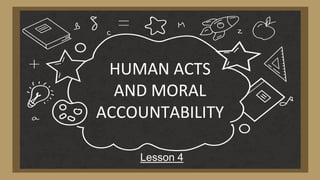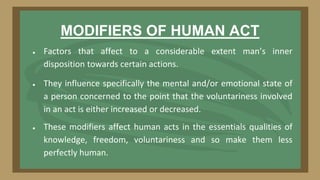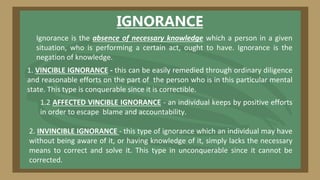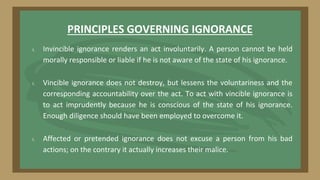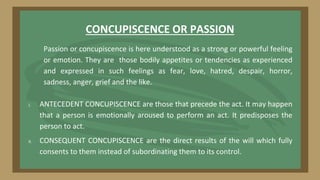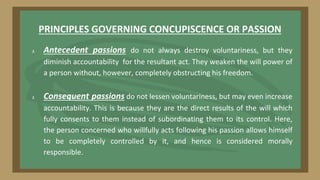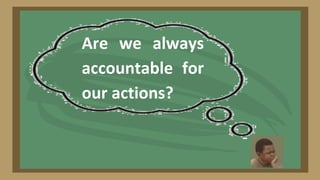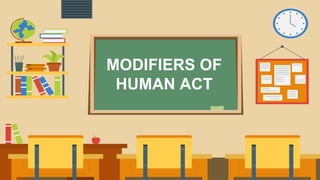The document discusses modifiers of human acts, which significantly influence an individual's mental and emotional state, affecting their knowledge, freedom, and accountability. Key modifiers include ignorance, concupiscence, fear, violence, and habit, each with distinct principles governing their impact on moral responsibility. The text underscores that certain conditions, like invincible ignorance and actions performed under violence, may exempt individuals from moral accountability.
